I AM THE FIRST ELECTED WOMAN MAYOR OF THE REPUBLIC OF ARMENIA
An Interview with Diana Gasparyan, Head of Vagharshapat Community
“Being authentic and drawing on one’s full range of interpersonal skills creates more effective leadership than conforming to stereotypes about professional performance.”
The story was developed in early 2025, during Gasparyan’s tenure as Head of Community. She stepped down later that year for personal reasons.
My interest in politics grew later in life, driven by a desire to bring about societal change. The suggestion to run for mayor from the political party came after the 2018 Velvet Revolution. I asked one question: “Do you truly believe I can take on this role?” The answer was: “If we didn’t, we wouldn’t have nominated you.” I also expressed my doubt, saying: “Ejmiatsin (Vagharshapat) will never elect a woman mayor.” The only thing that made me accept was knowing it would be temporary, giving me time to decide whether I truly wanted it. So, I agreed with the condition that I could step away at any time. They agreed. I had a three-month trial period to challenge my initial assumption.
“I don’t engage in self-deception. I like to look at things, including my mistakes, with honesty and objectivity.”
While I made significant changes and accomplished a lot during those three months, the post-revolutionary euphoria played a significant role, as did being the candidate of the leader of the political party.
“But when I was re-elected in 2021, it was based on two main factors: the quality of my work and the recognition it received.”
The post-revolutionary euphoria had faded by then, and my re-election reflected public recognition of the progress and positive outcomes achieved during my time in office. While I embrace the historical significance of serving as the first woman in this role, my primary commitment has always been to creating a lasting positive impact for my/our community.
.jpg?auto=webp)
“I don’t want to be remembered only for being the first woman mayor of Ejmiatsin, but as someone who served the city well and left a lasting impact.”
The path from my first term to my second reflects a natural progression every leader experiences, beginning with growth and learning, to more experienced governance. The attitude of those in power, particularly the men in Ejmiatsin, also had shifted. Where once I encountered distance, I now found meaningful engagement and collaboration from Ejmiatsin’s established leadership, which consisted primarily of men.

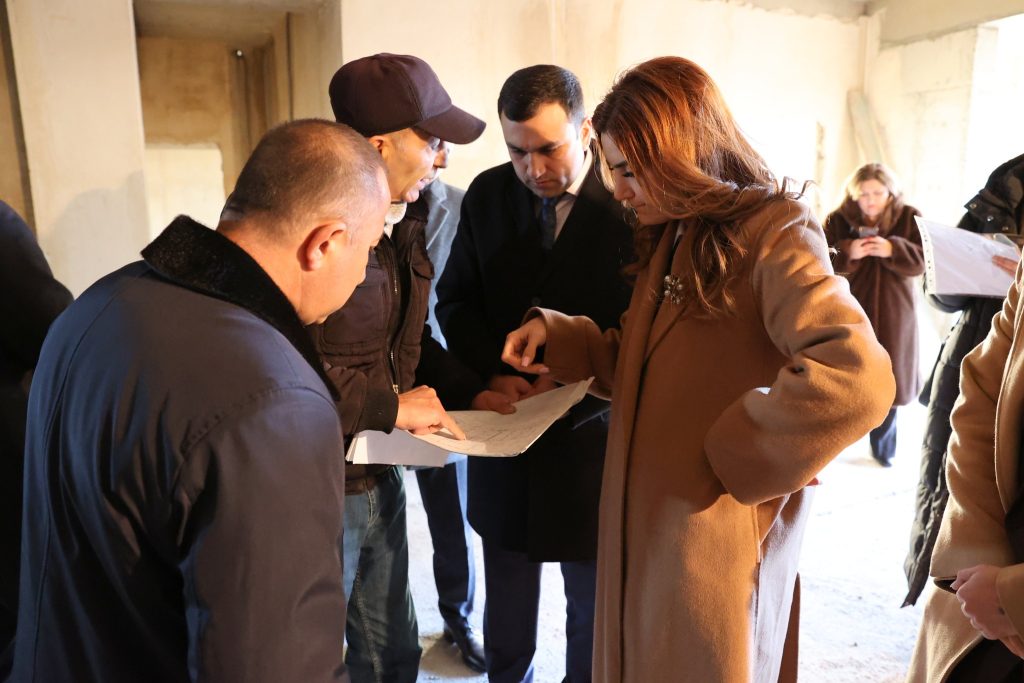
As Head of the Community (in 2021, the title was changed from Mayor to Head of Community, because Vagharshapat town, in the same year, was amalgamated with nearby villages and became Vagharshapat Community), the greatest challenge is managing the annual budget, especially when there are numerous competing needs. Every community request, whether for paving a small street or another, reflects genuine needs that deserve consideration. One of the challenges is making difficult decisions about resource allocation based on objective criteria, such as maximum community benefit. These decisions do not aim to dismiss the importance of other needs, but reflect the reality of limited municipal resources.
Another major issue I face as a leader of the community is decentralization, which is key to development. In Armenia, despite formal policies advocating for decentralized governance, the reality continues to reflect a predominantly centralized decision-making structure. Improving decentralization is crucial to improving governance in Armenia.

In the beginning, I was seen as an institutional leader, but over time, community members saw me not just as their elected official, but as a trusted advisor and community advocate. My leadership style naturally tends toward approachability and collegiality rather than strict authority. While I recognize the importance of maintaining professional boundaries, attempting to adopt an overly authoritative persona would feel inauthentic and likely undermine trust with my team. This collaborative approach creates a positive workplace environment, though it occasionally presents challenges when providing necessary critical feedback or addressing performance issues.
When I first started as Head of the Community, I was younger than many of my colleagues. However, I always ensured that everyone had an equal opportunity.
“I am firmly against micromanagement; I believe leaders should delegate responsibility and hold people accountable for their work.“
When I assign a task, I trust my team to handle it without constant supervision. I have always valued my employees and worked to create a comfortable environment, which has likely contributed to smooth operations. Additionally, I want young professionals to grow, develop, and thrive.
I have observed a subtle shift in public perception since my marriage. Despite maintaining the same level of commitment to my role, I occasionally encounter the perception that my priorities have somehow changed. This reflects a broader societal challenge where women public officials face scrutiny about their personal lives that rarely extends to their men counterparts. So I ask myself, why should a public servant’s marital status have any influence on perceptions of their professional dedication? What matters is performance and commitment to serving the community, regardless of one’s personal circumstances.
I bring my authentic self to my leadership role, which includes being emotionally responsive to different situations. There have been moments when I have cried, which I believe demonstrates my genuine commitment to our community’s well-being. I believe this empathetic approach and the ability to connect deeply with others’ experiences and understand their circumstances strengthen effective leadership.
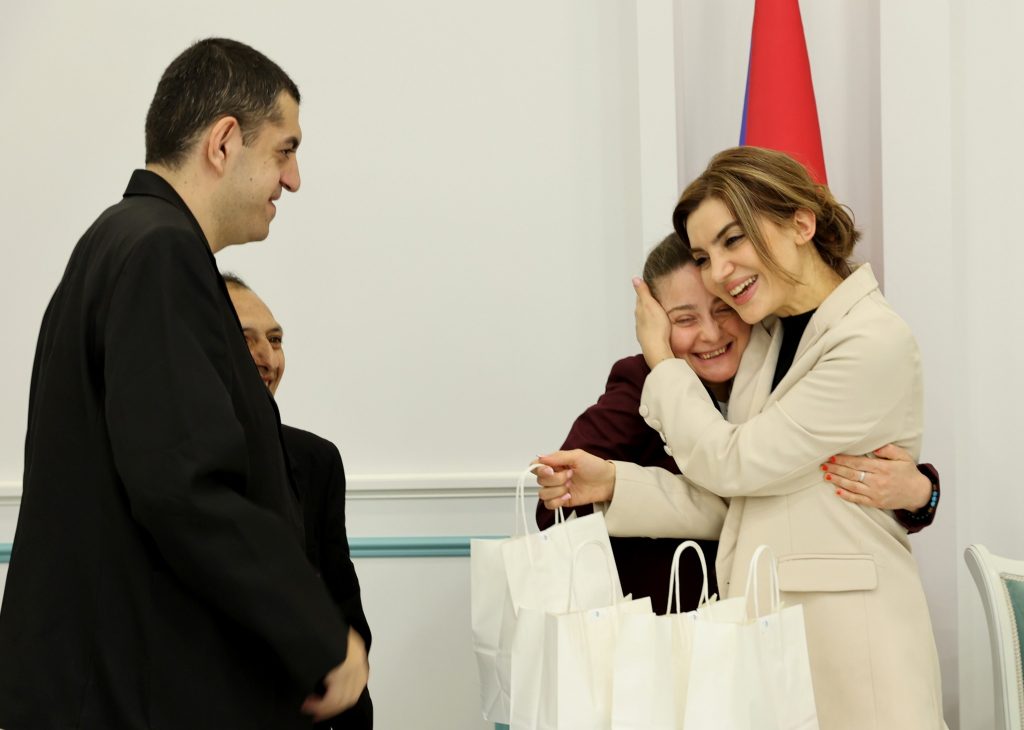
My election experience was quite unique and challenging. Ejmiatsin had long been under an authoritarian regime, which led to suppressed political ambitions. When the position became available, many people, who had previously been too scared to act, suddenly wanted it. The nature of the anti-campaign was different because of my gender. The men candidates used every possible method to fight against me, including fair and unfair tactics.
“A fabricated intimate video was circulated, falsely attributed to me. At the time, this was incredibly challenging. Such attacks reflect double standards in political scrutiny.”
In our society, if a man had a video of an affair spread, it wouldn’t have harmed him, because men aren’t targeted for their personal lives. But for me, the edited video would have been damaging. But you know what used to bother me the most in this situation? It was how the men on my team might have felt. I was worried about how uncomfortable they might be seeing their woman leader portrayed this way and how it might undermine my authority in their eyes despite all my professional accomplishments.
In a society where men are taught to distance themselves from anything that threatens expected masculinity, I feared they would feel compelled to distance themselves from me to protect this sense of identity. They had to resist social pressure that tells men not to align themselves with women who have been associated with controversy, especially one with sexual undertones.
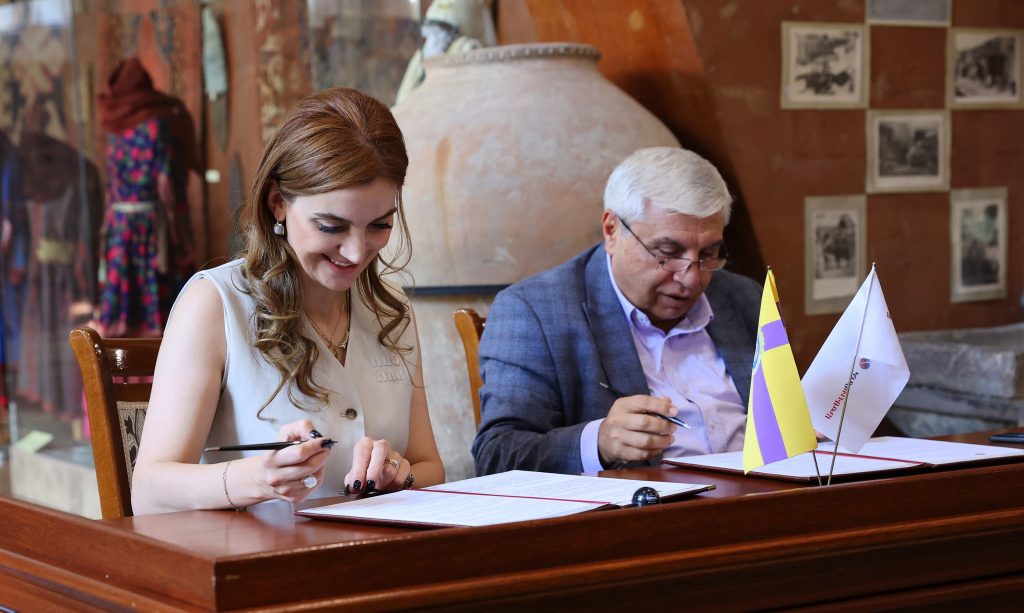
I’ve achieved many things, but I think my biggest and most fulfilling achievement as a leader has been building a new library for Ejmiatsin. This project has been a long-held dream of mine, and seeing it come to life has been incredibly rewarding. I’ve always envisioned having the most beautiful library in Armenia, in Ejmiatsin.
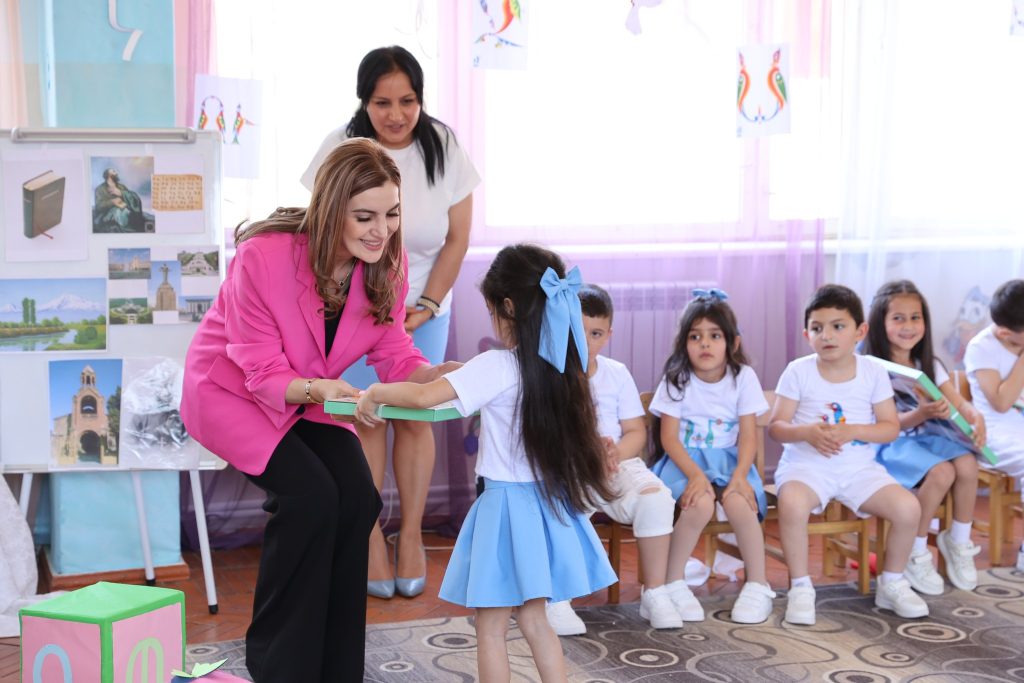
There are other key areas where our consistent efforts are leading to long-term results. First and foremost is the improvement of infrastructure in kindergartens. Here, the community invests both its own budgetary resources and successfully secures co-financing from the state or support from international partners. Our goal is clear: every child should grow up in a safe, comfortable, and developmentally supportive environment.
I also consider the expansion and strengthening of the community’s external relations a true success. We have managed to build relationships of mutual trust with a number of international and local organizations, turning Vagharshapat into a reliable and respected partner. This not only enhances our community’s reputation but also paves the way for sustainable development through new programmes, investments, and collaborations.
Youth engagement is a core priority for us. In 2022 we opened the Ejmiatsin Youth House, which has since welcomed over 700 teens aged 13 to 18. More than just creating spaces like this, we are committed to sustaining them, funding their operations through the community budget. The centre now serves as a hub for self-expression, learning, and cultural exchange. For those over 18, the Vagharshapat Youth Union actively collaborates with the municipality, while we continue to expand sports infrastructure through both local funds and partnerships.

“I believe in the power of education as a tool for empowering women and driving societal change.”
Having a woman leader represents progress and provides essential role models for future generations, but addressing systemic gender-based challenges requires comprehensive approaches beyond any single individual’s efforts. All we need to do is trust women and give them equal opportunities. Let them have equal chances to express themselves. It’s a very simple formula.
I hope for more than just women recognizing their inherent strength – that message has been shared countless times. What I truly wish is to embrace their full, authentic selves without fear.

Some leaders believe they must adopt stereotypically assertive behaviours to be taken seriously, but I think that qualities often stereotyped as ‘feminine’ – such as empathy, collaborative decision-making – are valuable leadership strengths. Being authentic and drawing on one’s full range of interpersonal skills creates more effective leadership than conforming to stereotypes about professional performance
There is one form of success that I value above all: the psychological impact I have had. Through my active involvement, I have been able to inspire many women — to show that a woman is fully capable of leading, making decisions, and embracing her ideas and ambitions without fear.
“If my example can inspire even one woman to believe in herself and pursue her dreams, then that, without a doubt, is the greatest success of all.”
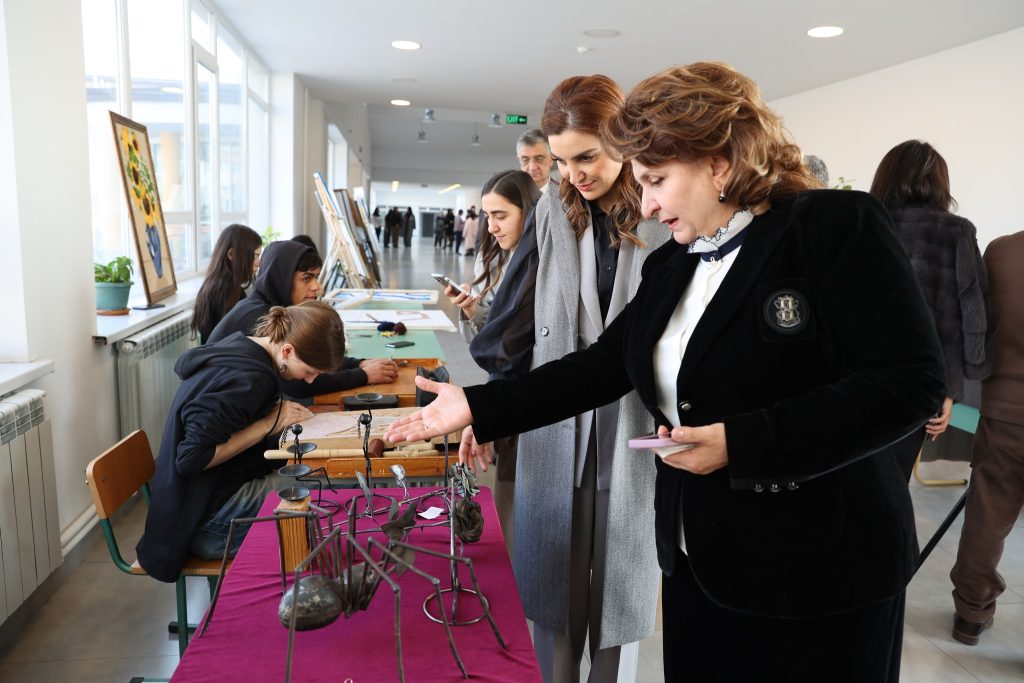

Footnotes This story was developed for the Equal Future platform, within the framework of the “Women in Politics, Public Administration and Civil Society” project, implemented by UNDP in partnership with the RA Ministry of Territorial Administration and Infrastructure and OxYGen Foundation, in collaboration with the UK Government’s Good Governance Fund. If you’re interested in discovering more stories from mayors across the Eastern Partnership countries, explore the Mayors for Economic Growth (M4EG) Facility, which supports mayors and their cities throughout their transformative journeys.

